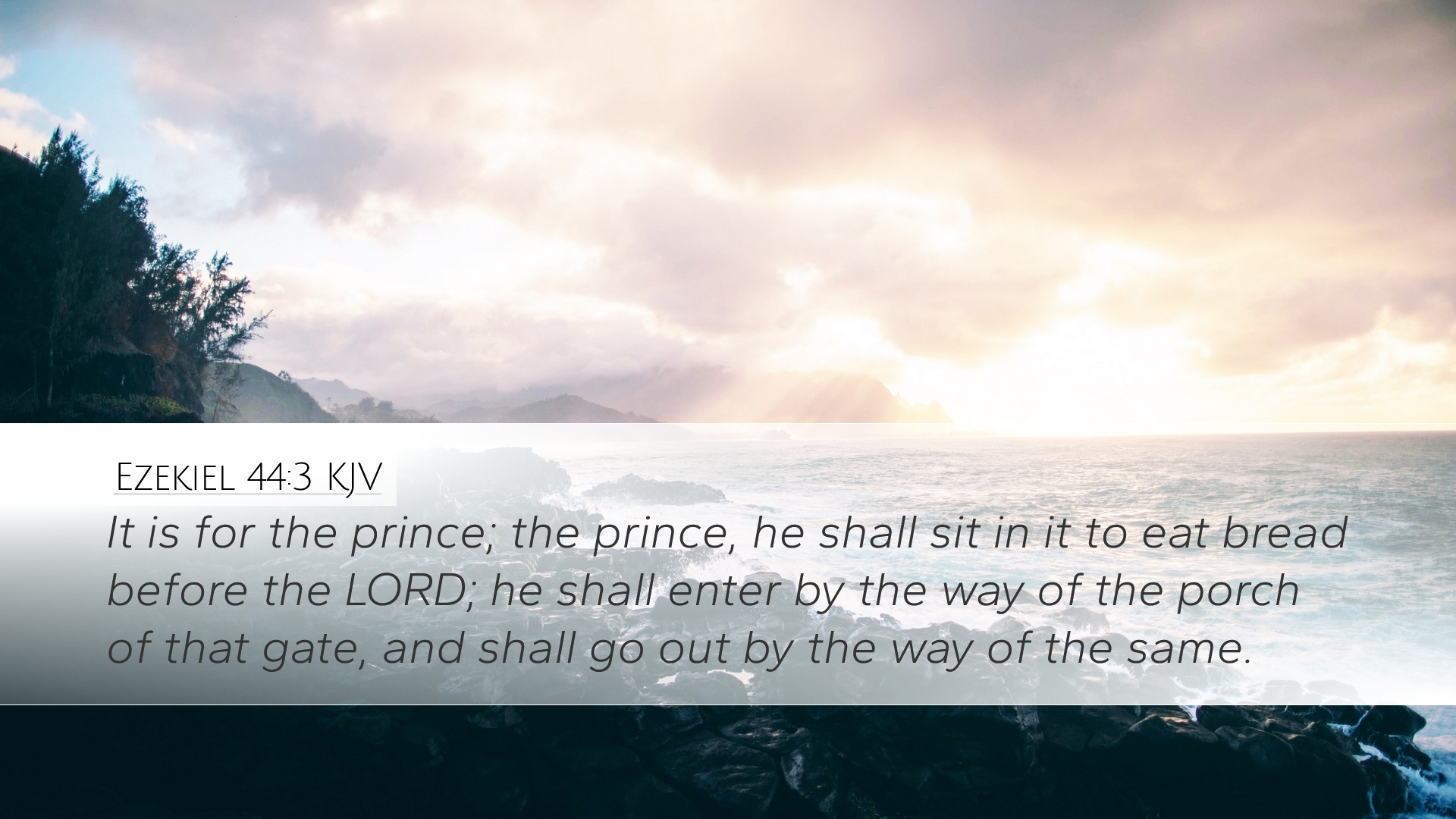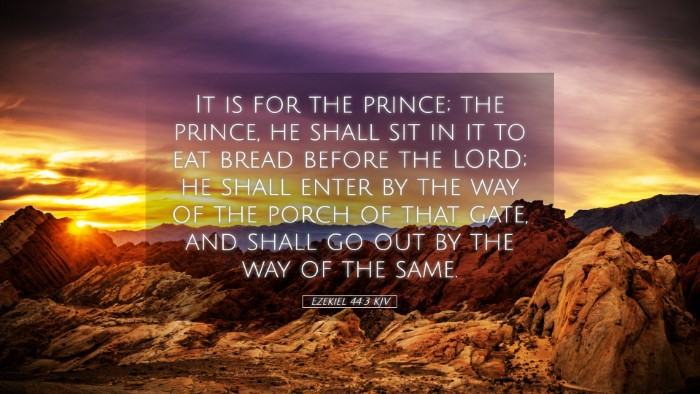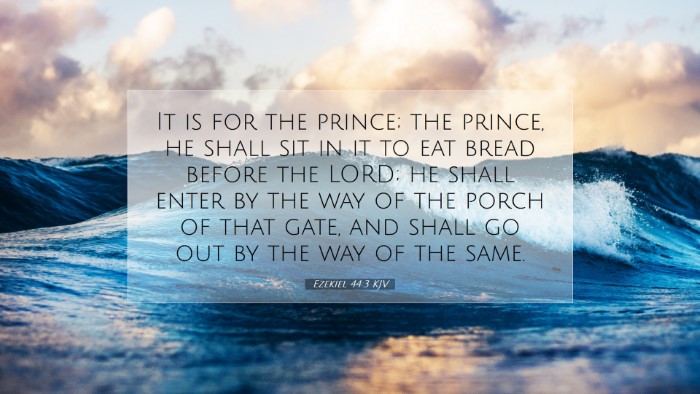Ezekiel 44:3 Commentary
Verse Text: "It is for the prince; the prince shall sit in it to eat bread before the Lord; he shall enter by the way of the porch of that gate, and shall go out by the way of the same." (Ezekiel 44:3, KJV)
Introduction
The passage of Ezekiel 44:3 plays a pivotal role in establishing the context of worship, leadership, and the divine order within the temple. This verse not only emphasizes the significance of the prince's role but also highlights the reverence required in the presence of God. The commentaries of esteemed scholars such as Matthew Henry, Albert Barnes, and Adam Clarke provide rich insights into the meaning of this text, unraveling layers of theological and practical implications.
The Role of the Prince
1. Authority and Leadership: The term "prince" refers to a leader, often associated with high authority. According to Matthew Henry, the prince represents the ideal ruler under Divine guidance, embodying a model of governance that is submissive to God's laws. His entrance into the temple signifies the acknowledgment of divine authority and the necessity of righteous leadership within the nation.
2. Divine Appointment: The prince’s ability to engage in temple worship, as noted by Albert Barnes, shows that authority in God’s kingdom is not self-derived; it is appointed by God. This role starkly contrasts with the corrupt leadership observed historically in Israel, emphasizing that true leaders must conduct themselves in a manner that seeks the favor of the Lord.
Worship and Reverence
1. Eating Bread Before the Lord: The act of eating bread before the Lord represents fellowship and communion with God. Adam Clarke elucidates that this practice signifies a sacred relationship whereby the leader not only partakes of physical nourishment but also signifies spiritual sustenance from God. It reflects the importance of worship in the context of leadership.
2. Entrance through the Porch: The method of entry via the porch underscores the significance of approach to God. Matthew Henry points out that the prince’s way of entry signifies a prescribed manner that reflects respect and decorum before the Divine. The temple's structure necessitated physical and spiritual preparation, indicating that entering God’s presence requires reverence and purity.
Theological Implications
1. God’s Covenant with His People: This verse is a profound reminder of the covenants established between God and His people. Albert Barnes emphasizes that the provisions made for the prince are a continuation of God's promise to His people, showcasing His desire to maintain a close relationship with them—one characterized by rules and order.
2. The Christological Perspective: From a Christological standpoint, the prince can also be viewed as a typology of Christ, the ultimate Leader and Shepherd of God’s people. Adam Clarke connects this with the New Testament portrayal of Jesus, who serves as the mediator between humanity and God, emphasizing that His presence enhances our communion with the divine.
Practical Applications
1. Spiritual Leadership Today: For modern pastors and leaders, Ezekiel 44:3 serves as a model for spiritual leadership. Leaders are called to demonstrate humility and reverence as they guide their congregations. They must engage consistently in worship, reinforcing the idea that leaders should never claim authority apart from their dependence on God.
2. Importance of Corporate Worship: The inclusion of “eating bread before the Lord” also calls attention to the significance of corporate worship in the life of believers. Gathering in worship is not merely a ritual, but a vital aspect of maintaining community and unity in faith. It invites every believer to partake in the spiritual nourishment that comes from collective worship of God.
Conclusion
Ezekiel 44:3 encapsulates the essence of divine order within community leadership and personal worship. The insights drawn from Matthew Henry, Albert Barnes, and Adam Clarke allow contemporary readers to grasp the vital importance of approaching God’s presence with reverence while recognizing the God-ordained role of leaders. In a world where leadership is often marred by corruption, this passage provides a timeless reminder of the responsibilities and privileges afforded to those who aspire to lead God’s people.


